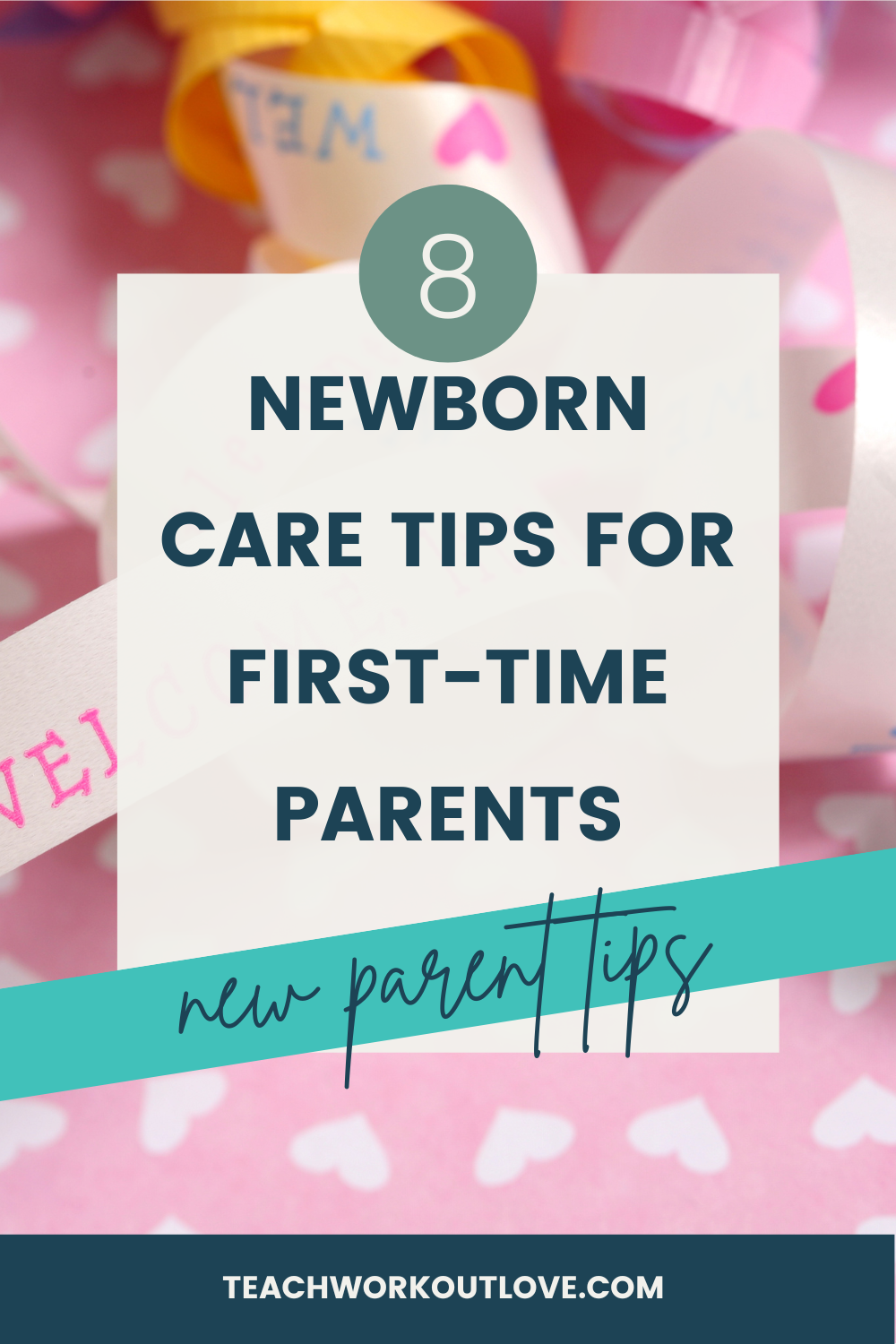
Having a baby instantly changes all your priorities. Instead of worrying about all the little things, all of your concern and energy is focused on that one tiny, helpless, perfect little person.
Being a new parent can be terrifying. It’s also exhausting, stressful, and incredibly fulfilling. Newborns need you for everything, and it’s not always easy to know what you should do next. There’s a lot of pressure to be a perfect parent, even if that isn’t a realistic goal.
If you’re expecting your first baby (or your newborn is already here!), you’ll get a lot of advice from well-meaning people about how to deal with those early, sleepless weeks of parenthood. It can get a little overwhelming, so just try to keep things simple and remember that your only job is simply to keep you and your baby safe and healthy. Here are some care tips for those first few weeks.
1. Ask for (And Accept) Help
If you have a partner, it’s important to trade off newborn care duties so that each parent can get some sleep, take a shower, or eat an uninterrupted meal. But whether you have a partner or not, it’s important to know that it’s okay to ask for help when you have a newborn. In fact, you should ask for help — and you should also accept help when it’s offered.
Let people bring you casseroles. If a friend offers to clean or watch the baby while you take a shower, take them up on it. Parenting a newborn is hard enough. You don’t need to refuse help and make it even more challenging. Be on the lookout for postnatal problems like postpartum depression and seek support from a professional if needed.
2. Remove Obstacles in Your Routines
You won’t be getting much sleep when you have a newborn, but it’s important to get as much rest as you can. Removing obstacles in your routines can make it easier to stay on top of important tasks like food prep and nighttime feedings. Here are some of the ways you can streamline and optimize:
- Set up your sleeping arrangements for easy night feedings at first if your baby will be sleeping in a crib.
- Keep meals simple. Prep some frozen meals in advance, sign up for a meal kit service, or even just order a pizza once in a while. As long as you’re fed, things will work out.
- Try to delegate tasks like cleaning and laundry.
- Make exercising convenient by keeping your shoes and your stroller or baby wrap close to the door.
- Let some things go. No one will expect your house to be perfect when you’re caring for a newborn.
3. Use A Gentle Touch and Learn Soothing Techniques
Since newborns are fragile and their movements are limited, you should be sure to hold them gently. Make sure to provide support for their head and neck, and don’t jiggle them to soothe them at this age, as doing so can be dangerous.
There are many different soothing techniques you can try, from swaddling to playing music or singing to your baby. You’ll quickly find out what does and doesn’t work!
Make sure you wash your hands regularly to help keep your baby safe from infection and have visitors wash theirs as well when they hold the baby. People who are ill need to stay home!
4. Have You and Your Baby’s Doctors on Speed Dial
You’ll probably be doing a lot of worrying in the first few weeks and months. That’s perfectly normal! You’ll have lots of questions about your baby’s health and behavior. For any health-related questions, make sure you have your pediatrician on speed dial.
Speaking of pediatricians, it’s important to schedule checkups as recommended after you give birth, for both you and your baby. Your baby’s doctor will want to ensure that they are developing properly and that their vital signs are within normal ranges. Your doctor will want to ensure that you are recovering as expected from the birth and monitor your overall physical and mental health.
5. Breastfeeding? Expect Some Difficulties
Many women assume that breastfeeding will be effortless — after all, it’s natural. Unfortunately, that’s rarely the case. Most new moms can benefit from the help of a lactation consultant to help ensure that the baby is nursing properly and getting enough nutrition. Expect you’ll run into some bumps when breastfeeding and don’t be afraid to ask for help!
Remember, babies should be fed on demand and will need to eat about every 2-3 hours. Whether you’re bottle feeding or breastfeeding, pay attention to your baby’s methods of communicating their needs!
6. Accept Your Exhaustion
The old tip “sleep when the baby sleeps” is fundamentally good advice — after all, newborns sleep around 16 hours a day. The problem is that newborns don’t sleep for long stretches in succession, meaning that you’re likely to catch some catnaps, but not much more, for quite a while. Plus, babies don’t have to be on alert at all times like new parents do!
Sleep deprivation as a new parent is one of the worst aspects of having a newborn. With that said, it’s better to accept your exhaustion. Resenting how little sleep you’re getting will only make you feel worse. Sleep when you can and accept that you won’t get very many opportunities for a while.
7. Take Time to Savor the Moment
Bonding with your baby is very important, and it starts right away. There are so many things new parents have to worry about that it’s easy to get caught up in the anxiety of having a newborn and forget to enjoy the moment. Your baby will soon start to become more independent and you’ll miss these early days!
Cuddling with your baby, singing to them, and skin-to-skin contact will all help to build the bond between you and your baby. Don’t let those moments go by unnoticed! Savor them.
8. Realize That Every Baby is Different
Every person on earth is unique. Babies have a lot of growing to do before their full personalities start to blossom, but it’s important to remember that even tiny babies have their quirks and their habits vary. Your friends’ babies will have different sleep schedules than your baby and you’ll all encounter your own parenting challenges.
Being prepared to adapt will serve you well as a new parent. You can prepare as much as possible but at the end of the day, babies will always surprise you. The best you can do is be prepared to adapt based on the needs of your baby so you can survive early parenthood and move on to fewer sleepless nights!
This post contains affiliate links and I may receive a commission, at no additional cost to you, should you purchase through one of my links. Please see my disclosure for more information.






